For years, the National Arts Theatre languished in a state of disrepair, which caused it to lose its illustrious position as the primary centre for the performing arts in Nigeria.
The last major event hosted at its main bowl was the 1994 screening of the late Hubert Ogunde’s famous film, Ayanmo. Thirty years later, thanks to the Bankers’ Committee, the monument is back to its magnificent place as a national pride.
The renovation of the national landmark, which commenced in July 2021 following approval by the Federal Government and its subsequent handover to the Bankers’ Committee, couldn’t have come at a better time in our nation’s history, putting into context Nigeria’s booming creative sector.
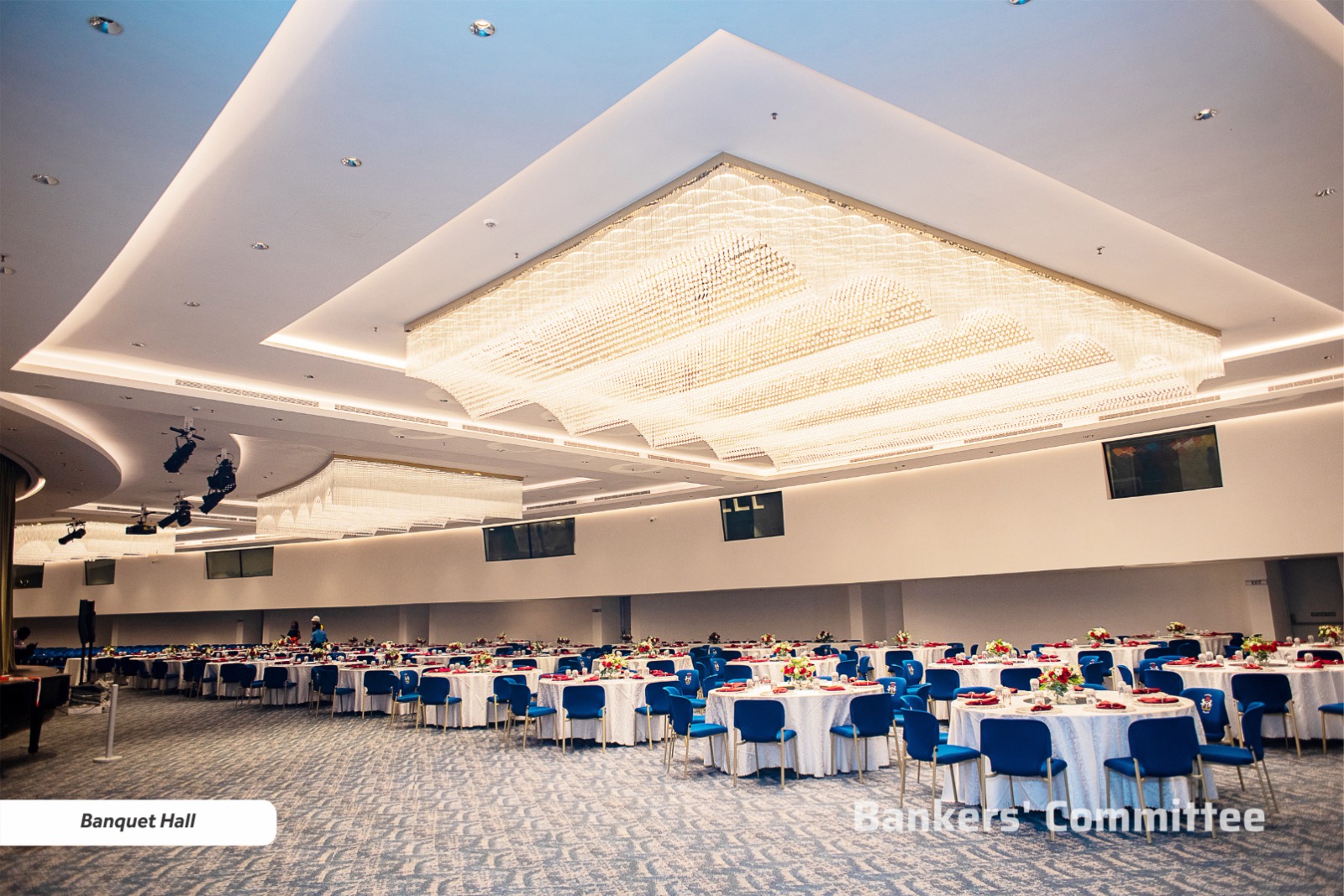
Constructed by the military regime of General Yakubu Gowon and completed in 1976 by the Olusegun Obasanjo administration, the National Arts Theatre shares the same architectural design as The Palace of Culture and Sports in Bulgaria, just that it is the bigger of the two.
Its completion coincided with hosting the Second World Black and African Festival of Arts and Culture (FESTAC ‘77) held in Lagos, Nigeria, from January 15 to February 12, 1977, which remains the most spectacular event held at the iconic monument.
Without exaggeration, the new-look National Arts Theatre can best be described as the proverbial king’s palace that got burnt and was refurbished to opulence. From aesthetics to functionality, stepping into the palatial surroundings of the national edifice is a sight that leaves the eyes indebted.
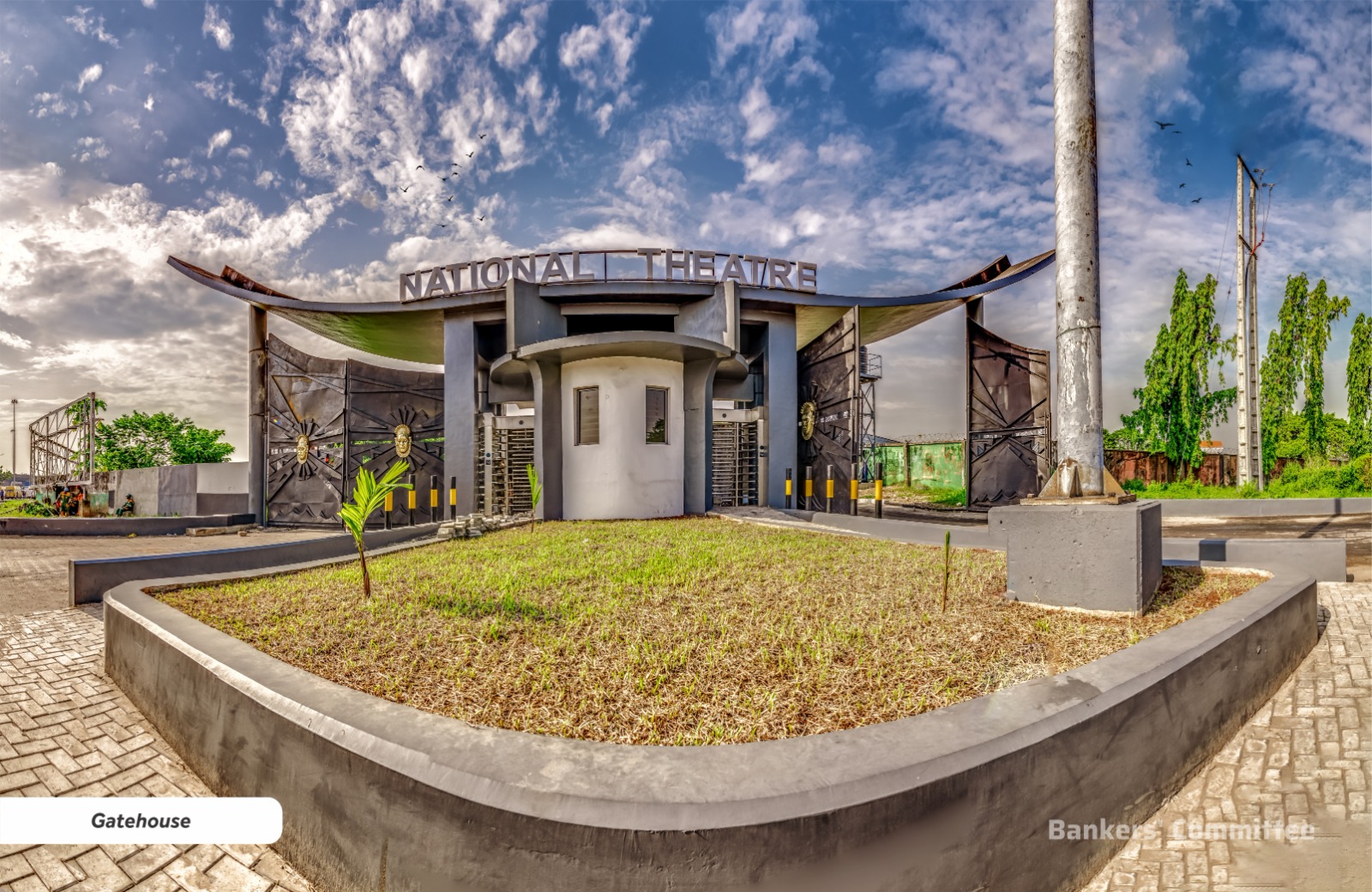
The state-of-the-art renovation works cover different spaces, including the 4,000-seater main bowl, over 3,000-seater banquet hall, exhibition halls, cinemas, VIP spaces, actors’ changing rooms, industrial kitchen, over 300 new toilet cubicles, clinic, fire station, lobbies within the four entrances and extensive roof repairs.
The facilities have also been upgraded to match the best standards of theatre and performance in the world including the replacement of the entire Heating, Ventilation and Air Conditioning (HVAC) system, power, water supply and sewage systems.
The interior is a wonder to experience boasting installations of Audio Video Lighting (AVL), world stage engineering system, 17 lifts including dumb waiters, solar power, new furniture for spaces and restoration of artworks including those on the internal wall panels and the building façade.
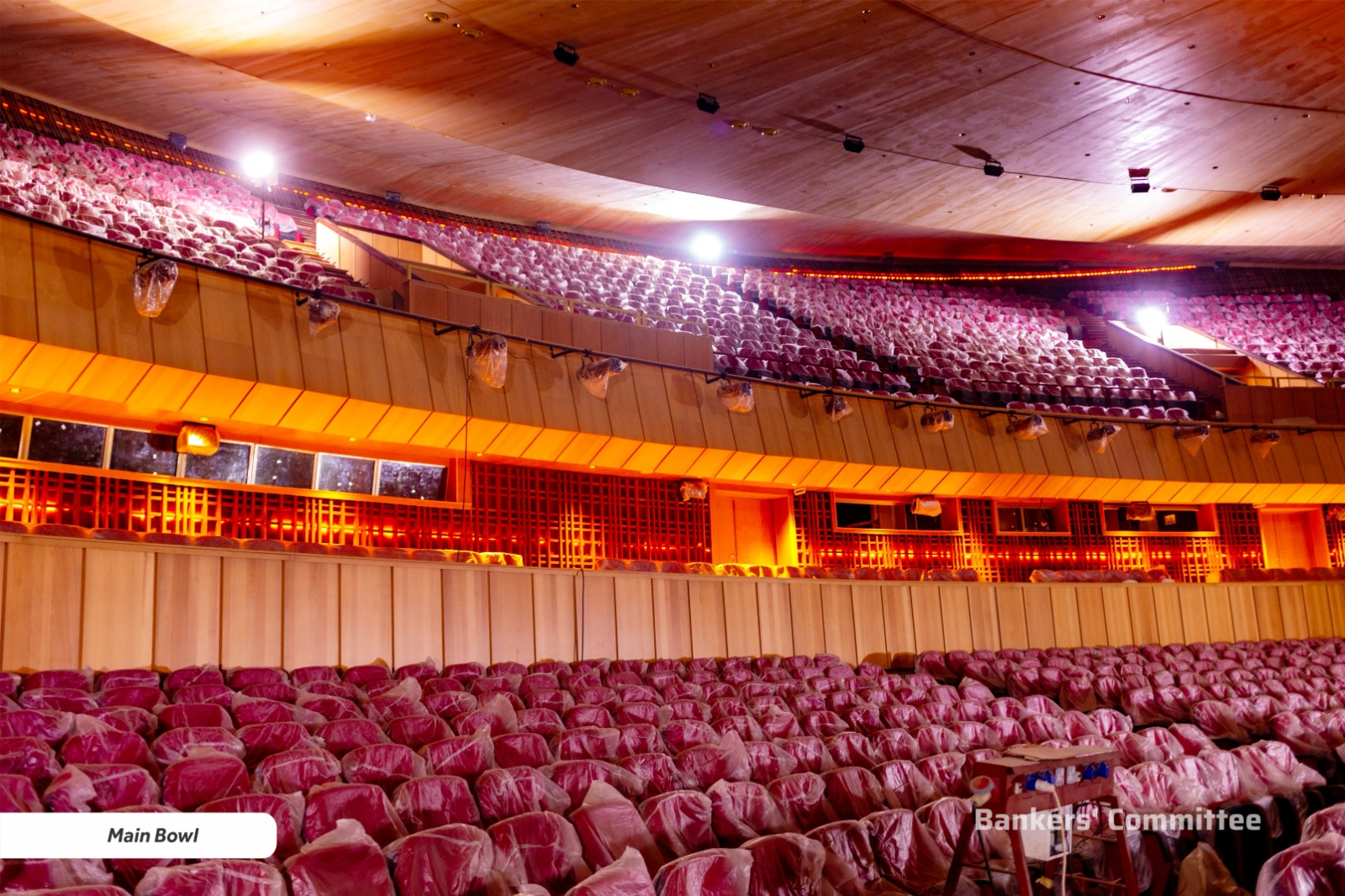
The exterior parts are not left untouched with the refurbishment of the three entrance gatehouses, construction of four themed landscapes, car park block that can accommodate 250 cars, the ring road, and installation of external street lighting and CCTV cameras.
Little wonder that when the Lagos State Governor, Babajide Sanwo-Olu, on his official tour of the monument during the renovation, was so marvelled that he said,
“Upon completion, the Wole Soyinka Centre for Culture and the Creative Arts (National Arts Theatre) will not only be for arts, tourism and culture but will also provide a venue for the international community to convene for conferences and enjoy world-class performances.”
Such is the versatility that the monument offers in the vision of the Bankers’ Committee, who ensured that it is upgraded to meet modern standards and serve strategic purposes that combine entertainment, corporate events and relaxation.
The successful completion of this architectural masterpiece by the Bankers’ Committee, which used to rank as one of the largest theatres in Africa until its recent displacement by the Grand Theatre of Rabat in Morroco, deserves commendation. Breathing life into the historic walls of this monument is a stamp of patriotism that only those who believe in the country can undertake dedicating their sweat, expertise and wealth.
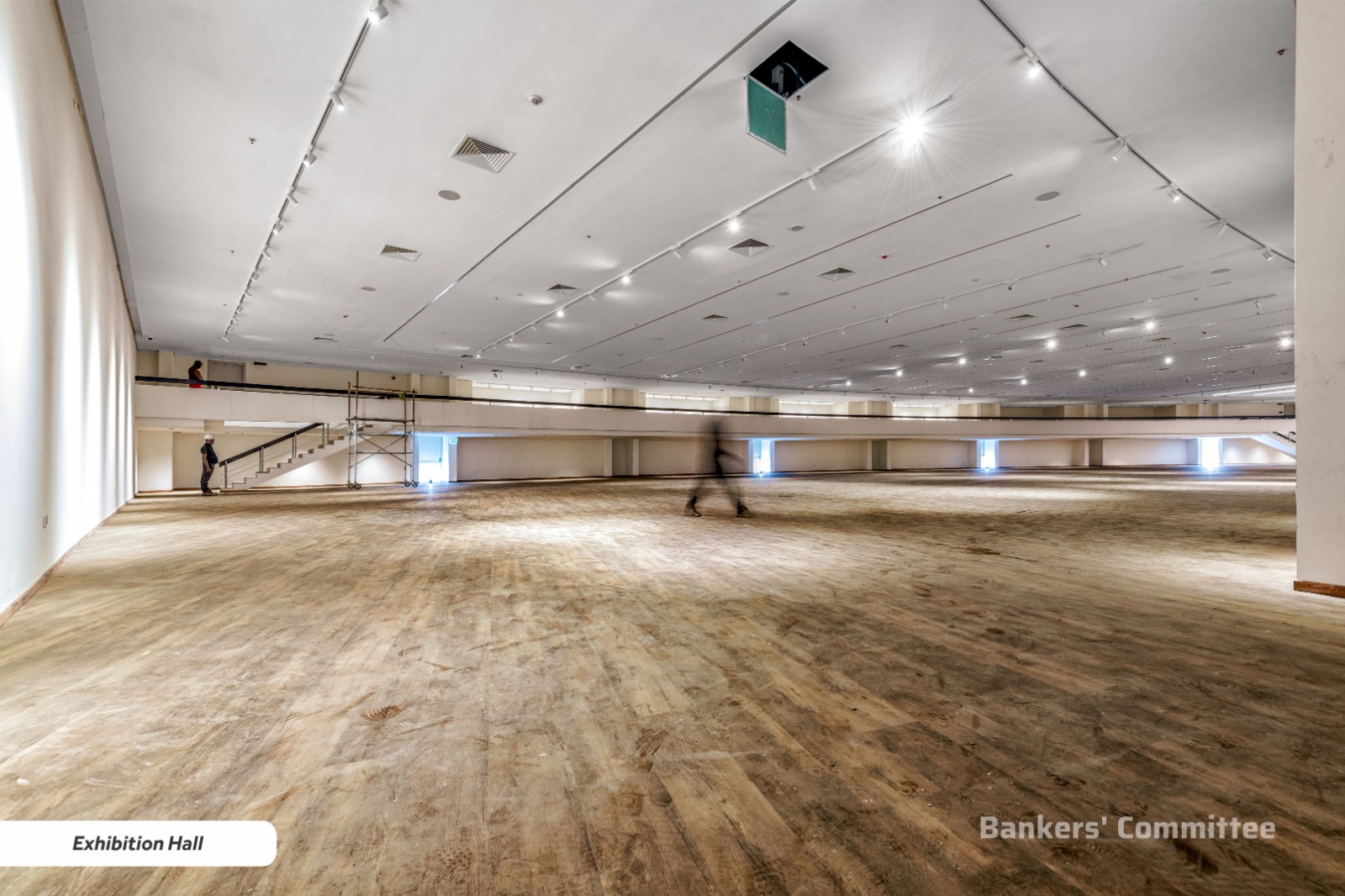
There are so many positives to take from the success of this renovation project; one is the power of collaboration, which the Managing Director/Chief Executive Officer of Sterling Bank Group, Abubakar Suleiman, in the capacity of a representative of the Bankers’ Committee during one of the renovation tours highlighted. According to him,
“The renovation of the National Theatre by the Bankers’ Committee showcases what is possible with the power of patriotism and collective responsibility on the part of the private sector in partnering with the Federal and Lagos state governments to reignite hope and revive some of our national monuments and assets”.
In ensuring that the restoration of the National Theatre was done to world-class standards, the Bankers’ Committee engaged the best contractors and consultants in the global construction sector to provide expertise in its implementation. Renowned Contractors include Cappa and D’Alberto as the Main/Civil Contractor, VACC Technical as the Mechanical Contractor, Nairda as the Electrical Contractor and Charvet Nigeria as the Ring Road & Car Park Civil Contractor.
Notable Consultants who played important roles in the successful restoration and refurbishment of this national monument include Lateral Design Concepts and Alitheia Capital Real Estates as Project Managers; ECAD Architects as Architects; Morgan Omonitan and Abe as Civil / Structural Engineers; CA Consultants as Mechanical & Electrical Consultants; Du-franc & Partners as Quantity Surveyors; SMO Contemporary Art as Artwork restoration/curator; Desmus Mimarlik Ticaret A.Ş Turkey, SI.SA, Y&T Designs as Interior Designers/Specialist Light & Sound Consultants.
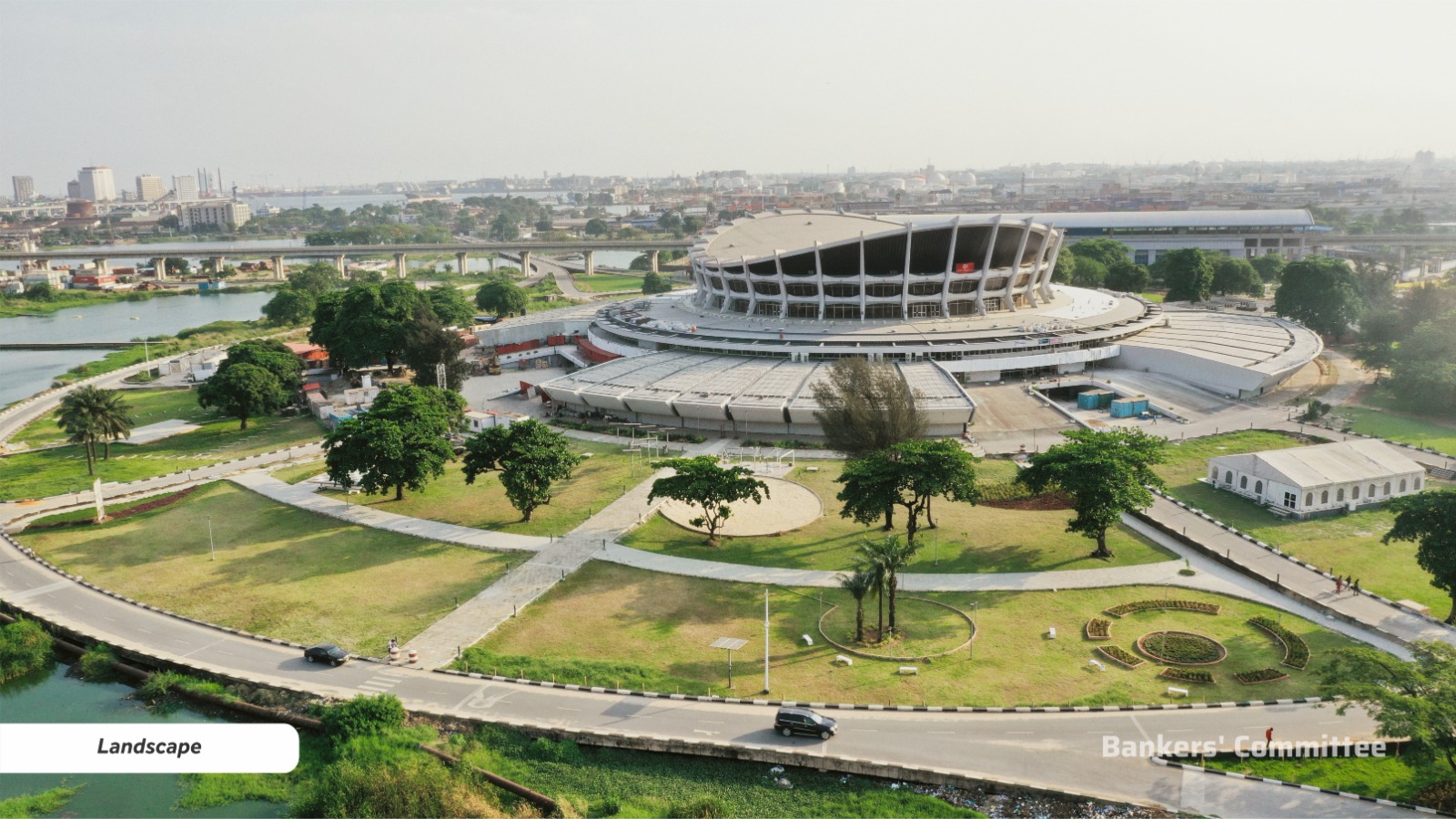
Sandra Mbanefo Obiago, Founder & Artistic Director, S M O Contemporary Art, who worked on the restoration of the artworks in the National Theatre noted that;
“The National Theatre has the most important collection of large modernist works in Nigeria. We have huge panels made of wood by some of the best sculptors in Nigeria…The spectacular stained-glass panels were a very tricky piece of art to conserve because they are meters long and cannot be moved because of their delicate nature, so we had to build a structure around the stained glass.
We had to consult with stained glass experts abroad. ..We probably had about 50 to 60 people working on the conservation of these artworks…”
Jumoke Akinwunmi, Partner/Managing Director, Alitheia Capital Real Estate and the Lead Project Manager for the restoration project, while speaking on the restoration, noted,
“I think that the one thing that we have refused to sacrifice or give up on is the quality of the place because having done all of this, this really must stand out as a world-class thing. The truth is, yes you can see all of the beautiful woodwork, ceilings and floors, but the real work was actually in the services.
An incredible amount of work has been done to take this from a building of 50 years ago to meet the codes and standards of today’s services.
In his remarks on the restoration work, Rotimi Finnih, Managing Director, Lateral Design Concepts and Project Manager for the restoration project, stated,
“We thought that initially coming in, the scope won’t be too expansive and that it was just to change a couple of things but as the project has evolved, you begin to get a general idea of the extent of works which has had to go in. Initially, it was a bit of responsibility and trepidation, but now, it is a lot of pride.”
Now that the monument is back and better with state-of-the-art facilities and taking its pride of place as a national treasure and beacon of creativity, we look forward to more public-private sector collaboration in the resuscitation of our national monuments.
The next step is ensuring the creative center operates at an optimal level to fulfill its lofty aim of unlocking opportunities for youth in the creative sector. This will lead to job creation, income generation, and the earning of foreign exchange.
Sponsored Content


